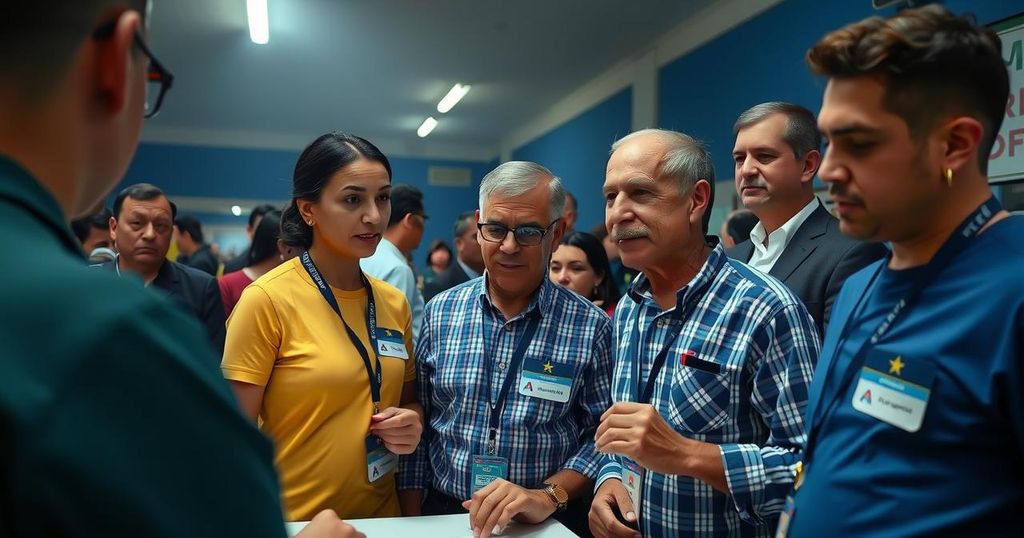Uruguay Presidential Run-Off: A Close Contest Between Left and Right Parties

Uruguay is holding a presidential run-off election between leftist candidate Yamandu Orsi and right-wing candidate Álvaro Delgado, as the left seeks to return to power after five years. The election is closely contested, with initial polls indicating a tight race and a significant portion of undecided voters. With economic concerns at the forefront, this election reflects broader global trends in voter behavior and party dynamics.
Voting is currently underway in Uruguay’s presidential run-off election, where the leftist Frente Amplio (Broad Front) is seeking to reclaim power following five years of governance by the right-wing coalition. The election pits Yamandu Orsi, the Broad Front candidate and former mayor, against Álvaro Delgado of the National Party, who has the backing of the outgoing President’s center-right coalition. The polling places opened at 8 AM local time and are set to close at 7:30 PM, with initial results expected shortly thereafter.
Uruguay’s political climate remains relatively stable compared to other regions in Latin America, with less pronounced left-right polarization. Polls indicate a highly competitive race, potentially separating the candidates by a mere 25,000 votes. While President Lacalle Pou enjoys a 50% approval rating, questions persist about his government’s performance, particularly regarding crime and inflation.
Orsi has proposed a ‘modern left’ approach and previously garnered 43.9% support in the first round, while Delgado received 26.8%. Although both candidates aim to attract undecided voters and those who previously supported smaller parties, neither has introduced substantial new pledges in the final stretch of the campaign. Voter sentiment appears divided, with some expressing uncertainty about their choices.
In light of broader electoral trends worldwide, the outcome of this run-off may reflect whether incumbent parties in Uruguay can maintain voter support amidst economic challenges that have affected many nations.
Uruguay’s presidential run-off is a significant political event, marking a pivotal moment for the nation after years of right-wing governance. Former President José Mujica’s Broad Front, known for its progressive stance, is attempting to return to power against the backdrop of strong political competition. The election context is crucial, as it reflects both local issues, such as employment and crime, and global electoral trends where incumbents face challenges due to economic dissatisfaction. The political dynamics in Uruguay showcase a more nuanced interaction between leftist and rightist factions compared to other Latin American countries, making this election particularly noteworthy.
The presidential run-off in Uruguay stands as a critical juncture for the nation, reflecting a balance between historical political affiliations and current socio-economic challenges. With a narrow expected margin of victory and the absence of new policy commitments from leading candidates, voter engagement remains uncertain. This election will be pivotal in determining whether the Broad Front can regain influence or if the current ruling coalition can hold its ground against rising public discontent.
Original Source: www.aljazeera.com







